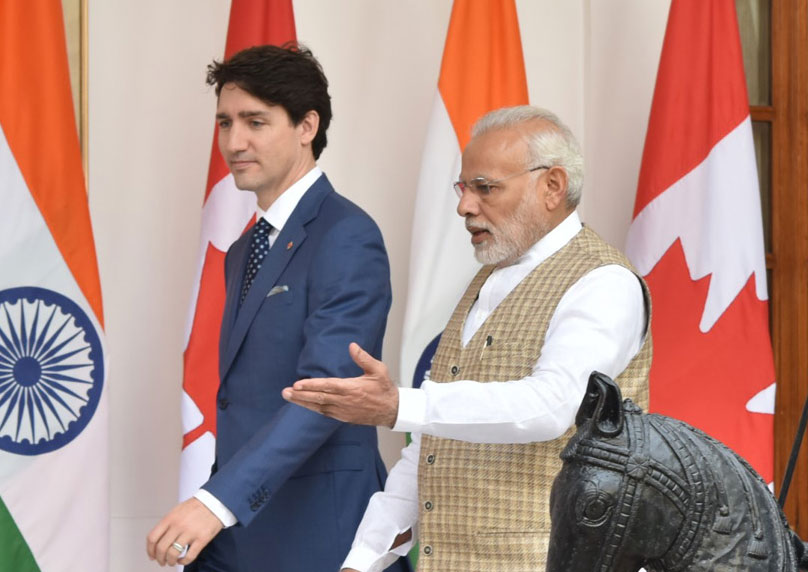
On October 14, 2024, Canadian Prime Minister Justin Trudeau linked six Indian diplomats, including High Commissioner Sanjay Kumar Verma, to activities of espionage in the country.
In the same press conference, Foreign Minister Mélanie Joly also revealed that Canada had decided to expel the said diplomats from the country and that India had subsequently recalled those diplomats.
In response to the developments, India decided to expel six Canadian diplomats, including acting High Commissioner Stewart Wheeler.
Canada’s accusations
The Royal Canadian Mounted Police (RCMP) accused agents of the Indian government of orchestrating violence, including homicides, against Canadian citizens, particularly those from the Sikh community.
The RCMP’s statement, led by Commissioner Mike Duheme, detailed a breadth of activities allegedly linked to Indian intelligence, ranging from direct threats to the lives of individuals to interference in democratic processes within Canada. The disclosure comes after what was described as ‘well over a dozen credible and imminent threats’ to members of the South Asian community, specifically those associated with the Khalistan movement, which advocates for an independent Sikh state.
Canada had already accused Indian officials of having a part in the assassination of Hardeep Singh Nijjar, a prominent Sikh separatist leader, on Canadian soil in June 2023.
India reacts
India’s reaction was swift. Branding the allegations as baseless, the Ministry of External Affairs announced the recall of its ambassador from Canada while expelling six Canadian diplomats from India.
The strongly worded statement from the MEA accused Canadian leadership of putting the security of the Indian diplomats in jeopardy in an atmosphere of extremism and violence.
The MEA also accused Canadian Prime Minister Justin Trudeau of resorting to vote bank politics.
India further questioned the soft stance taken by Mr. Trudeau’s government towards extremists on Canadian soil.